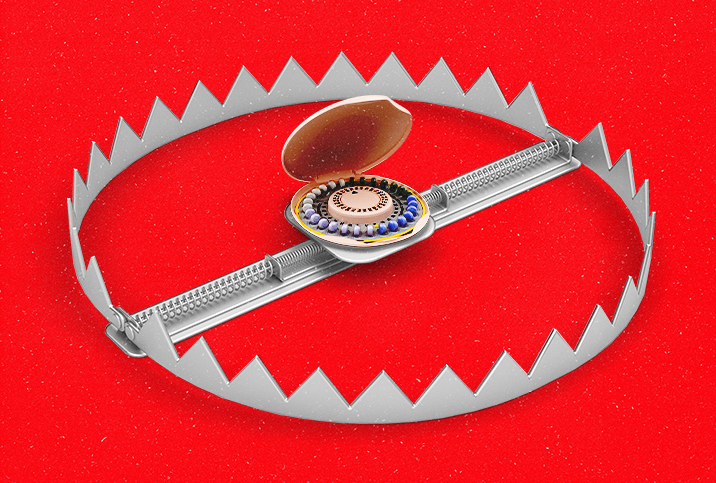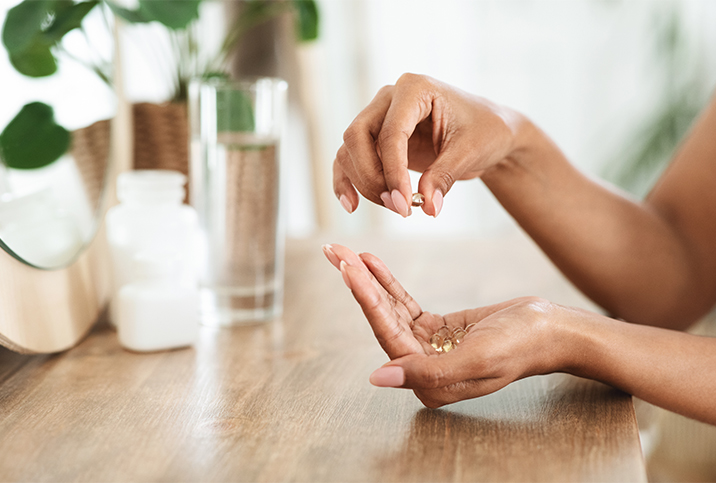Five Reasons Your Vulva Might Be Swollen—and How to Treat It

The vulva is one of the most sensitive parts of the body, which makes it susceptible to swelling and tenderness.
Any swelling in the vulva indicates there is increased blood flow to the area, and this typically occurs when the body is fighting an infection or healing from an injury, explained Allison Hill, M.D., an OB-GYN in Los Angeles and a medical advisor for Wisp, an online sexual healthcare company.
The causes of vulvar swelling
Some of the main causes of a swollen vulva include vaginitis, an allergic reaction, sex, pregnancy and Bartholin cysts.
1. Vaginitis
If you experience swelling alongside a "fishy"odor or a watery or cottage cheese-like discharge, then you could be dealing with a type of vaginitis, explained Sarah Welsh, D.O., an OB-GYN and founder of Hanx, a women's sexual health brand headquartered in London.
There are a few forms of vaginitis, with the most common ones being yeast infection, bacterial vaginosis (BV) and sexually transmitted infections (STIs), such as chlamydia or gonorrhea.
Bacterial vaginosis is the most common vaginal infection in the world, estimated to affect around 21.2 million women ages 14 to 49 in the United States. This inflammation of the vulva is caused by an imbalance or change of vaginal bacteria, according to Welsh.
BV is not a sexually transmitted infection, but it is more prevalent in people who are sexually active. Douching, having multiple sexual partners and smoking can increase your risk.
It's important to seek help from a doctor so they can find out what form of vaginitis you're experiencing. Getting the wrong treatment can prevent you from healing or exacerbate symptoms in some cases.
2. Allergic reaction
A swollen vulva that's caused by an allergic reaction is referred to as noninfectious vaginitis. The main culprits are perfumed soaps, detergents, douches and vaginal sprays.
The chemicals in some of these personal care products can irritate the skin, which can lead to swelling and discomfort.
"Make sure you're using nonbio laundry detergent, check for fragrances in tampons or sanitary pads, and avoid using shower gels or soaps around your vulva in the shower," Welsh said, referring to nonbiological detergents, which are free of biological enzymes.
3. Sex
Have you noticed a swollen vulva after having sex? This can be completely normal.
"When you're turned on, blood flow increases to your vulva, which might appear a little swollen or puffy," Welsh explained. "If you've been having rougher sex, you might notice this more as it's likely due to the repeated impact or friction."
This swelling should go down after a few hours, and any pain or discomfort should subside.
4. Pregnancy
A swollen vulva is a common pregnancy symptom and often caused by increased blood flow. As the pelvic region expands, this increased blood flow can lead to swelling and some discomfort.
Hormonal changes are another factor, as they can cause an imbalance of bacteria in the vagina, which can trigger inflammation and swelling.
5. Bartholin cysts
"Bartholin glands are small, pea-sized glands [on] either side of your vaginal opening. These can sometimes become infected, causing raised lumps known as cysts," Welsh said.
If the cysts are small, they may not cause any symptoms. If left untreated, some Bartholin cysts may grow bigger, causing the outer labia to become sore and swollen.
How to treat a swollen vulva
Treatment depends on the cause of the swelling. If you suspect it's caused by an allergic reaction or sex, it will likely get better on its own. To help reduce swelling and speed up the healing process, Hill suggested taking over-the-counter anti-inflammatory medications, such as Motrin, Advil or Aleve.
"If you've experienced a yeast infection before and are confident with over-the-counter treatments, you probably don't need to see a healthcare professional," Welsh said.
However, if you're in extreme pain, have a fever or experience unusual discharge, you should contact your doctor.
If you're pregnant, you might find temporary relief by applying a cold compress to the swollen area and elevating your pelvis to reduce some of the pressure. If the condition doesn't improve or you are still in pain, speak to your doctor, who may prescribe a topical ointment to help.
In many cases, it's better to speak to your doctor rather than trying to self-treat at home, as this can prevent recovery or lead to a worsening of symptoms if there's an infection present.
How to prevent the swelling
Not all cases of a swollen vulva can be prevented, especially if it's caused by sex or pregnancy.
"If you're having unprotected sex, you're at risk of STIs, such as trichomoniasis, which can cause swelling, itchiness, foul-smelling discharge and pain when urinating or having sex," Welsh warned.
For this reason, it's important to get regular STI checks, especially if you're experiencing any symptoms.
Some other preventive measures include:
- Using condoms during sex
- Avoiding douching
- Avoiding perfumed soaps
- Avoiding scented menstrual products
- Wiping front to back
- Wearing loose-fitting underwear made from cotton or bamboo
Whatever the reason for your swelling, treatment is available. Make an appointment with your doctor as soon as you notice something amiss.


















